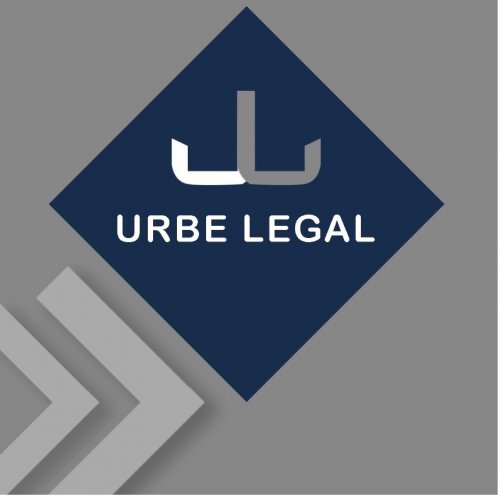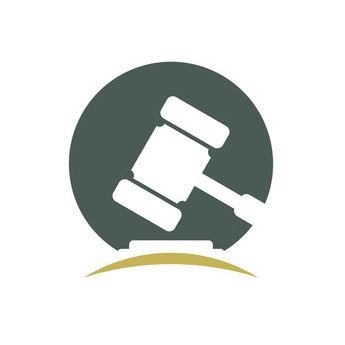Best International Trade Law Lawyers in Guatemala City
Share your needs with us, get contacted by law firms.
Free. Takes 2 min.
List of the best lawyers in Guatemala City, Guatemala
About International Trade Law in Guatemala City, Guatemala
International Trade Law in Guatemala City, Guatemala is governed by a combination of international agreements, regional trade accords, and national legislation. Guatemala is a member of the World Trade Organization (WTO) and partakes in several trade agreements, including those with Central American countries, the European Union, and North America. The laws are designed to regulate the trade of goods and services across borders, providing frameworks for tariffs, quotas, trade facilitation, and dispute resolution. Understanding these regulations is essential for businesses engaging in export and import activities in and out of Guatemala City.
Why You May Need a Lawyer
Seeking legal advice in International Trade Law may be necessary for a variety of reasons. Businesses may need help navigating the complexities of customs regulations or require assistance with compliance in cross-border transactions. Issues such as tariff classifications, anti-dumping duties, and export controls can present significant legal challenges. Furthermore, resolving trade disputes, negotiating international contracts, or addressing challenges from foreign trade laws also necessitate legal expertise. Companies looking to expand their operations internationally might benefit from legal counseling to understand trade policies and agreements specific to Guatemala's market.
Local Laws Overview
In Guatemala City, key aspects of local laws impacting International Trade include regulations on customs and import-export procedures, enforced by the Superintendency of Tax Administration (SAT). Trade agreements like CAFTA-DR influence tariffs and trade barriers. Intellectual property rights are protected under Guatemalan law, aligning with international standards. Additionally, companies engaged in international trade must adhere to environmental regulations, labor laws, and industry-specific standards to ensure compliance with national and international legal frameworks.
Frequently Asked Questions
What is the role of the World Trade Organization (WTO) in Guatemala's trade law?
The WTO provides a global framework within which Guatemala operates its international trade policies. It helps resolve trade disputes and establishes binding agreements that govern trade relationships. Guatemala's membership ensures adherence to WTO rules, affecting how it legislates and executes its trade policies.
How is customs duty determined on imports to Guatemala?
Customs duties in Guatemala are calculated based on the classification of goods under the Harmonized System Code. The Superintendency of Tax Administration (SAT) uses these classifications to determine applicable duties, considering trade agreements that may influence the rates for specific goods.
What are the key trade agreements influencing Guatemala’s trade policies?
Some key trade agreements include the Central America-Dominican Republic Free Trade Agreement (CAFTA-DR), agreements with the European Union (Association Agreement), and various bilateral agreements that reduce tariffs and foster trade cooperation with different countries.
How can businesses protect their intellectual property in international trade?
Businesses can protect their intellectual property by registering their trademarks and patents with the Intellectual Property Registry in Guatemala, ensuring they comply with both national and international laws regarding intellectual property rights.
What legal responsibilities do companies have regarding environmental compliance?
Companies engaged in international trade must adhere to Guatemala's environmental regulations, including proper waste disposal, emissions control, and sustainable resource use, ensuring activities do not harm the local or global environment.
Are there specific sectors deemed sensitive in Guatemala's trade laws?
Sectors such as agriculture, pharmaceuticals, and telecommunications have specific regulatory requirements, often due to their impact on national security, health, and economy, necessitating additional compliance with local laws.
How do trade disputes typically get resolved in Guatemala City?
Trade disputes can be resolved through negotiation, arbitration, or litigation. Many conflicts are settled through mechanisms provided in international agreements like the WTO Dispute Settlement Body or bilateral agreements.
What is the process for exporting goods from Guatemala?
The process involves obtaining necessary permits, ensuring compliance with export regulations, preparing documentation such as invoices and packing lists, and fulfilling customs clearance procedures as guided by SAT.
How does importation licensing work in Guatemala?
Importation requires specific licenses for certain products, like pharmaceuticals or agricultural goods. Applicants must submit documentation proving compliance with health and safety standards as required by relevant governmental bodies.
What role do banks play in international trade transactions?
Banks facilitate international trade by providing financing, letters of credit, and escrow services that ensure reliable payments between exporters and importers, mitigating risks associated with cross-border trade.
Additional Resources
Several resources are available for those seeking legal advice in international trade: The Superintendency of Tax Administration (SAT), Ministry of Economy (MINECO), the Guatemalan Chamber of Commerce, and the Guatemalan Exporters Association (AGEXPORT) all offer valuable guidance and support for businesses engaged in international trade.
Next Steps
If you need legal assistance in International Trade Law, consider consulting with a specialized attorney who understands both local and international trade regulations. Look for lawyers with experience in your business sector and consult local business organizations or chambers of commerce for recommendations. It's crucial to proactively address any legal concerns to avoid complications in international trade operations.
Lawzana helps you find the best lawyers and law firms in Guatemala City through a curated and pre-screened list of qualified legal professionals. Our platform offers rankings and detailed profiles of attorneys and law firms, allowing you to compare based on practice areas, including International Trade Law, experience, and client feedback.
Each profile includes a description of the firm's areas of practice, client reviews, team members and partners, year of establishment, spoken languages, office locations, contact information, social media presence, and any published articles or resources. Most firms on our platform speak English and are experienced in both local and international legal matters.
Get a quote from top-rated law firms in Guatemala City, Guatemala — quickly, securely, and without unnecessary hassle.
Disclaimer:
The information provided on this page is for general informational purposes only and does not constitute legal advice. While we strive to ensure the accuracy and relevance of the content, legal information may change over time, and interpretations of the law can vary. You should always consult with a qualified legal professional for advice specific to your situation.
We disclaim all liability for actions taken or not taken based on the content of this page. If you believe any information is incorrect or outdated, please contact us, and we will review and update it where appropriate.

















